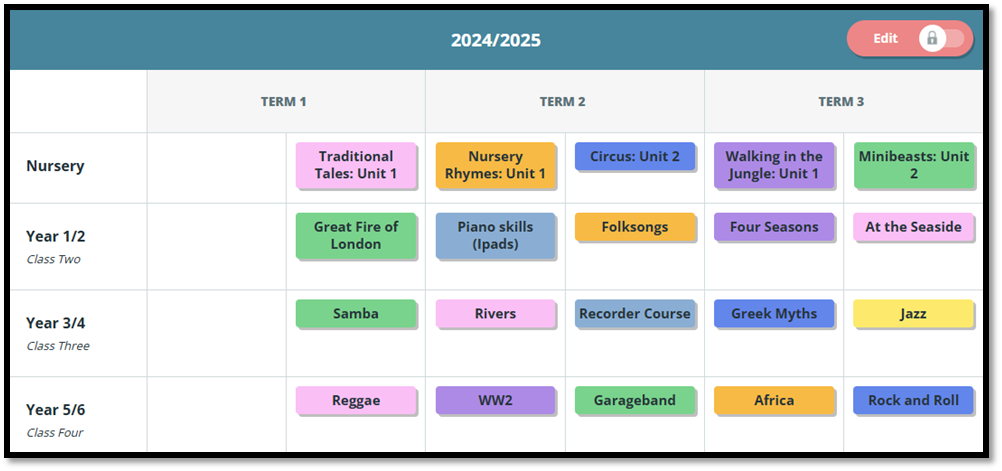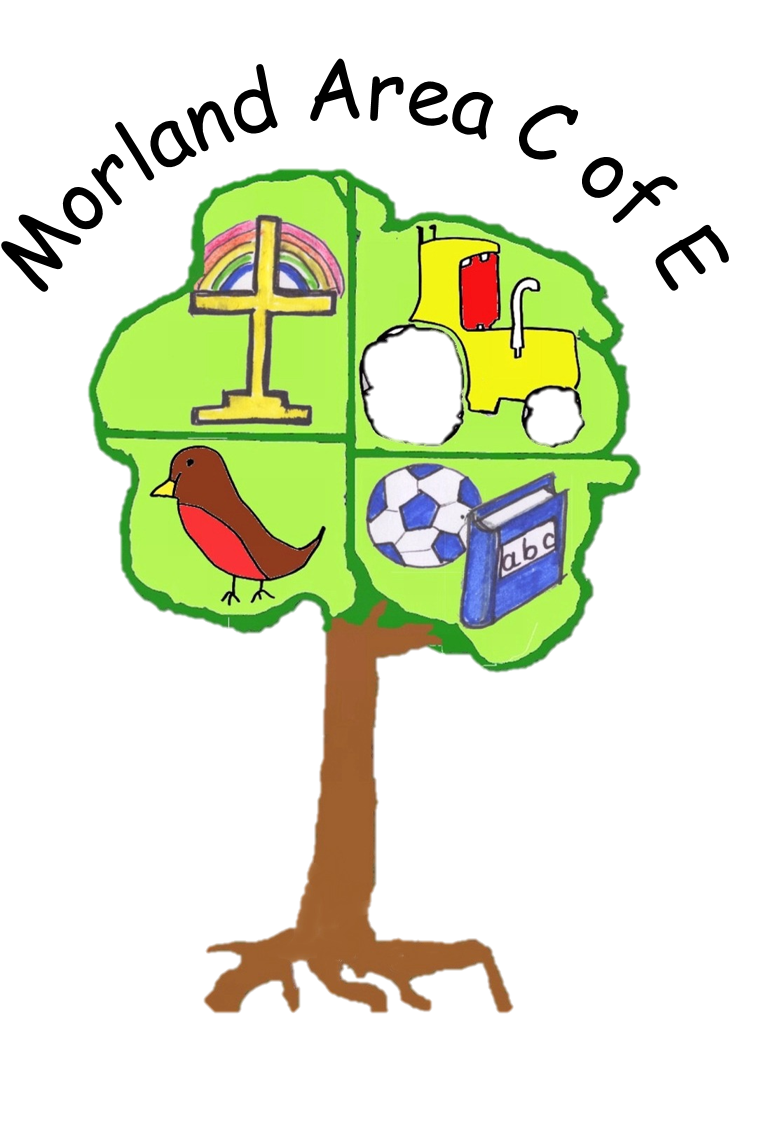Music
Music development plan summary:
Morland Area C of E Primary School
Overview
Academic Year: 2024-2025
Date this summary was published: January 2025
Date this summary will be reviewed: September 2025
Name of the school music lead: Miss Joanne Berry
Name of the local music hub: Cumbria Music Hub
Curriculum music
Purpose of study:
At Morland Area C of E Primary School we aim to deliver the best possible musical teaching and experiences to our children. Music is a universal language that embodies one of the highest forms of creativity. A high-quality music education should engage and inspire pupils to develop a love of music and their talent as musicians, and so increase their self-confidence, creativity and sense of achievement. As pupils progress, they should develop a critical engagement with music, allowing them to compose, and to listen with awareness to a range of musical genres. At Morland, music is taught every week for one hour from EYFS through to Year 6.
Music is important in the Early Years Foundation Stage as it helps children's development in several areas including communication and language, physical development and expressive arts and design. Children have access to a range of music provision both inside and outside. Inside, the children can access a range of percussion instruments, headphones and sing daily nursery rhymes and link singing with maths. In the outside provision, children can make music with objects such as pots and pans.
Aims:
The national curriculum for music aims to ensure that all pupils: perform, listen to, review and evaluate music across a range of historical periods, genres, styles and traditions. This also includes listening and appraising the works of the great composers and musicians, learning to sing and to use their voices, to create and compose music on their own and with others, have the opportunity to learn a musical instrument, use technology appropriately and have the opportunity to progress to the next level of musical excellence. Children should also be able to understand and explore how music is created, produced and communicated, including through the inter-related dimensions: pitch, duration, dynamics, tempo, timbre, texture, structure and appropriate musical notations.
We use a range of tuned and untuned instruments within our lessons and we are planning on introducing new and ongoing skills to each class with Class 2 learning piano skills (on Ipads), recorder in Class 3 and guitar in Class 4.
Subject content
Key stage 1 Pupils should be taught to:
- Use their voices expressively and creatively by singing songs and speaking chants and rhymes
- Play tuned and untuned instruments musically
- Listen with concentration and understanding to a range of high-quality live and recorded music
- Experiment with, create, select and combine sounds using the inter-related dimensions of music
Key stage 2 pupils should be taught to:
- Play and perform in solo and ensemble contexts, using their voices and playing musical instruments with increasing accuracy, fluency, control and expression
- Improvise and compose music for a range of purposes using the inter-related dimensions of music
- Listen with attention to detail and recall sounds with increasing aural memory
- Use and understand staff and other musical notations
- Appreciate and understand a wide range of high-quality live and recorded music drawn from different traditions and from great composers and musicians
- Develop an understanding of the history of music
Extra- curricular music
Private music lessons are offered in the Lyvennet suite for Ukulele, guitar, piano and singing by our peripatetic music teacher, Mrs Makinson on a weekly basis. There are opportunities within private music lessons to work towards ABRSM exams. We hold termly performances to showcase the children’s musical talents. Musical instruments can be hired from the local music service for a small additional cost (Hire an instrument – Cumbria Music Hub). With prior agreements, school can support and subsidise private music lessons if your child is eligible for pupil premium.
The whole school has a singing collective worship once a week where we practice and learn a range of hymns and songs for specific events throughout the year.
Our KS2 school choir meets weekly and learns songs to perform for the Young Voices concert, PTFA events and Christmas Carol fundraising.
Musical experiences
This is about all the other musical events and opportunities that we organise, such as singing in assembly, concerts and shows, and trips to professional concerts.
Children in KS2 have the opportunity to join choir and participate in a live singing concert, Young Voices, which is held in Manchester every year. We also go to the Theatre by the Lake with Year 1 to Year 6 children to watch a live Christmas performance. These events are supported by our PTFA to help reduce costs to parents.
We hold two Christmas performances, one for EYFS and KS1 and another for KS2, where all children from nursery to Year 6 are able to take part and perform to a live audience.
In the future
In Autumn 2, 2024, we moved to a new music scheme - Get set 4 Music which is a more engaging music curriculum with more reference to music terminology and notation.
We are excited about expanding our musical skills and aim for each class from Year 1 upwards to learn a new skill. Therefore, from the academic year 2024, we will be introducing piano skills (on Ipads) for Class 2 (years 1 and 2). Recorder skills will now be taught in Class 3 (years 3 and 4) and Class 4 (years 5 and 6) will continue to learn guitar with Mrs Makinson on a weekly basis.
Further information
Music is taught across all classes at Morland Area Primary School as shown in the timetable below (this is subject to change).
|
Class 1 |
Monday pm |
|
Class 2 |
Friday pm |
|
Class 3 |
Wednesday pm |
|
Class 4 |
Friday am |

|
You can use this link below to see our local music hub partners for different music groups outside of school. The Department for Education publishes a guide for parents and young people on how you can get involved in music in and out of school, and where you can go to for support beyond school https://www.gov.uk/government/publications/music-education-information-for-parents-and-young-people. The local music hub have a national plan for music which you can find on the following link National Plan for Music 2022 – Cumbria Music Hub |
